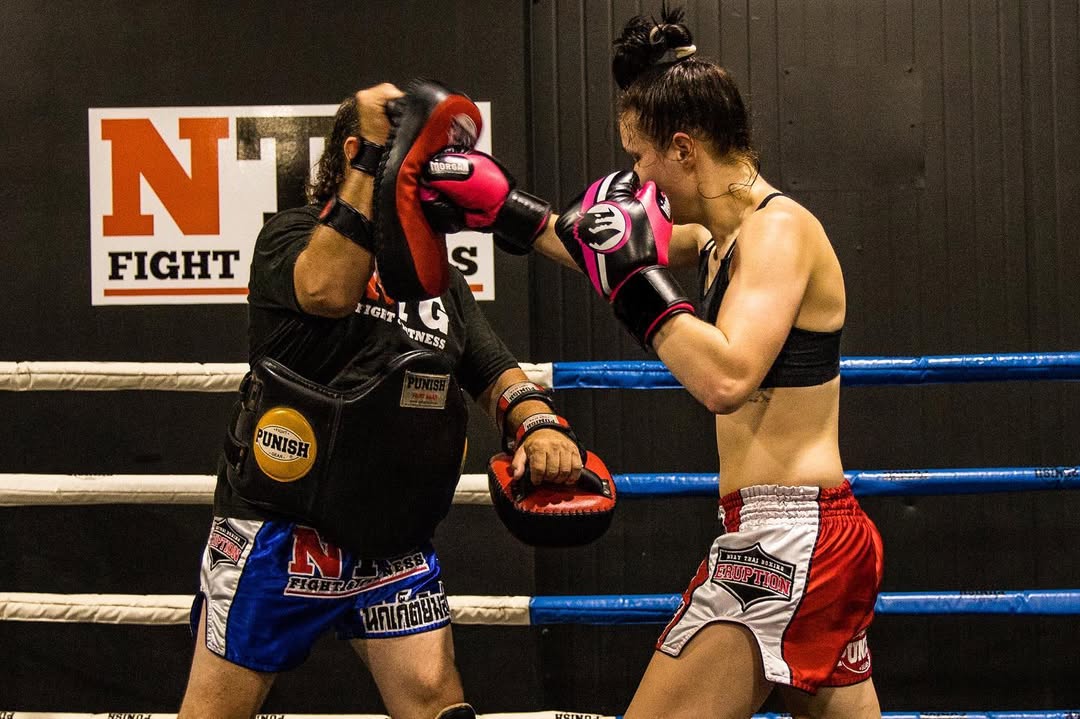In combat sports, fighters are often judged by their strength, speed, endurance, and skill. But behind every successful athlete is a well-balanced and purposeful diet designed to fuel training, enhance recovery, and optimize performance. Whether you’re a seasoned MMA competitor or someone just starting out with Muay Thai, boxing, or Brazilian Jiu-Jitsu, nutrition plays a critical role in how your body responds to physical demands.
Many athletes unknowingly overlook this essential component, focusing only on training intensity and duration. However, the right nutrition not only helps build muscle and recover from workouts but also regulates hormones, strengthens the immune system, and prevents injury. In this article, we’ll explore how fighters can align their diets with their goals, the science behind proper nutrition, practical meal plans, and how NTG Fight & Fitness Singapore supports its members in building sustainable, performance-driven eating habits.
Why Nutrition Matters in Combat Sports
Combat sports push the human body to its limits. Training sessions often involve high-intensity drills, strength exercises, endurance runs, and sparring—all of which require energy and nutrient replenishment. Without proper nutrition, a fighter’s performance can quickly decline due to fatigue, slow recovery, and increased susceptibility to injury.
Key reasons why nutrition is essential for fighters include:
- Energy Supply
Calories from carbohydrates, fats, and proteins fuel both training and recovery. Without sufficient energy intake, performance drops and the body starts breaking down muscle for fuel. - Muscle Repair and Growth
Protein is vital for repairing muscle fibers stressed during training. Adequate protein intake helps build stronger, more resilient muscles. - Hormonal Balance
Hormones like testosterone, cortisol, and insulin are directly influenced by nutrition. A poor diet can disrupt hormone balance, leading to fatigue, stress, and weakened immune function. - Hydration and Electrolyte Balance
Water and minerals like sodium and potassium are essential for maintaining nerve function, muscle contractions, and overall endurance during prolonged workouts. - Weight Management
Fighters often need to manage body composition carefully to stay within competition weight classes without compromising strength and stamina. - Mental Focus
The brain depends on glucose from carbohydrates to maintain concentration and reaction time. Proper meals help prevent crashes in energy levels.
The Science Behind Fighter Nutrition
The human body relies on three primary macronutrients for fuel: carbohydrates, proteins, and fats. Each plays a unique role in supporting combat athletes.
Carbohydrates: The Primary Energy Source
Carbohydrates are broken down into glucose, the body’s fastest and most efficient energy source. They fuel high-intensity training and help restore glycogen stores in muscles post-workout.
- Best Sources: Whole grains, brown rice, oats, fruits, root vegetables like sweet potatoes, and legumes.
- Role: Enhance endurance, improve recovery, and support brain function during training.
Protein: Muscle Repair and Immune Support
Protein provides amino acids necessary for muscle repair, immune function, and hormone regulation.
- Best Sources: Lean meats, fish, poultry, eggs, dairy, tofu, tempeh, lentils, and quinoa.
- Role: Helps rebuild muscle fibers, supports immune defense, and enhances strength gains.
Fats: Long-Lasting Fuel
Healthy fats are essential for hormone production, inflammation control, and sustained energy during longer training sessions.
- Best Sources: Nuts, seeds, avocado, olive oil, fatty fish like salmon, and coconut oil.
- Role: Supports endurance, brain health, and inflammation control.
Micronutrients and Hydration
Vitamins and minerals like calcium, magnesium, iron, and B-complex vitamins support everything from bone health to energy metabolism. Hydration, often overlooked, helps regulate body temperature, muscle contractions, and nutrient transport.
How Combat Training Influences Nutritional Needs
Different types of combat training stress the body in various ways, requiring adjustments in diet based on intensity, frequency, and goals.
For High-Intensity Sessions
- Increased carbohydrate intake to maintain energy.
- Electrolytes to compensate for sweat loss.
For Strength Training
- Higher protein intake to support muscle repair.
- Healthy fats to balance hormones and support long-term endurance.
For Weight Cutting
- Controlled caloric deficit combined with hydration strategies.
- Balanced intake of lean proteins and fiber-rich foods to maintain strength.
For Recovery Days
- Emphasis on nutrient-dense meals with anti-inflammatory properties.
- Adequate water intake to support detoxification and metabolic processes.
Sample Daily Meal Plan for Fighters
Here’s an example of how fighters can structure meals throughout the day for peak performance:
Breakfast
- Oatmeal with almond butter, chia seeds, and berries
- A boiled egg or plant-based protein option
- Green tea or water with lemon
Mid-Morning Snack
- Greek yogurt with honey and mixed nuts
- A piece of fruit like a banana or apple
Lunch
- Grilled chicken or tofu with brown rice, spinach, and roasted vegetables
- A side salad with olive oil and seeds
Pre-Workout Snack
- A small portion of complex carbohydrates like sweet potato
- A handful of almonds or a protein shake
Post-Workout Recovery
- Protein shake with whey or plant-based protein powder
- A banana and electrolyte drink
Dinner
- Baked fish or lentils with quinoa and steamed broccoli
- Avocado slices and olive oil dressing
Evening Snack
- Cottage cheese or plant-based yogurt with berries
- Herbal tea for relaxation
Hydration Strategies for Fighters
Water loss through sweat can deplete electrolytes, leading to cramps, fatigue, and impaired performance. Fighters should hydrate throughout the day and especially before, during, and after training.
Best practices:
- Drink 500 ml of water 2 hours before training.
- Sip water regularly during workouts.
- Replenish electrolytes with mineral-rich fluids or natural sources like coconut water.
- Avoid sugary sports drinks that can spike insulin and cause crashes.
Weight Management Without Sacrificing Performance
Maintaining optimal body composition is essential for competitive fighters. Crash diets or extreme fasting can compromise energy levels and immune function.
Healthy weight strategies:
- Gradual caloric adjustments based on training cycles.
- Balanced macro distribution with adequate protein intake.
- Portion control and meal planning.
- Avoiding processed foods and refined sugars.
NTG’s Approach:
Trainers at NTG Fight & Fitness Singapore help members tailor nutrition plans to meet weight targets safely while preserving strength, agility, and endurance.
Nutrition and Mental Performance
Diet not only influences the body but also affects how fighters think, react, and handle stress.
- Carbohydrates provide glucose for brain function.
- Omega-3 fatty acids reduce inflammation and improve mood.
- Magnesium helps regulate stress hormones and muscle relaxation.
- Protein supports neurotransmitter function, aiding in focus and mental clarity.
Fighters who eat balanced meals are better equipped to handle the psychological demands of training and competition.
Common Nutrition Mistakes Fighters Make
- Skipping Meals
Leads to energy crashes and muscle breakdown. - Over-reliance on Supplements
Supplements are aids, not substitutes for real food. - Neglecting Electrolytes
Sweating during training requires replenishment of sodium, potassium, and magnesium. - Extreme Calorie Restriction
Can reduce performance and immunity. - Ignoring Recovery Nutrition
Failing to eat after workouts slows muscle repair and increases soreness. - Consuming Processed Foods
Leads to inflammation and weight management issues.
How NTG Fight & Fitness Singapore Helps Fighters Eat for Success
Nutrition at NTG Fight & Fitness Singapore isn’t a one-size-fits-all approach. Each member receives personalized advice based on training intensity, body type, goals, and lifestyle.
What NTG offers:
- Nutritional Assessments: Trainers help evaluate current eating habits and tailor meal plans.
- Post-Workout Guidance: Advice on timing meals for optimal recovery.
- Hydration Strategies: Educating members on electrolyte balance and fluid intake.
- Weight Management Support: Safe and sustainable methods for achieving competition weight.
- Workshops and Educational Resources: Regular seminars on meal prep, nutrition myths, and recovery diets.
- Community Accountability: Members share recipes, strategies, and meal prep tips, creating a supportive network.
Conclusion
Nutrition is the backbone of every fighter’s performance. Proper eating habits fuel training, enhance recovery, regulate hormones, and sharpen mental focus—all of which are critical in combat sports. Without the right balance of carbohydrates, proteins, fats, hydration, and micronutrients, even the most intense workouts can fall short of delivering results.
At NTG Fight & Fitness Singapore, nutrition is seamlessly integrated into every training program, ensuring that members are not just working harder but smarter. Through personalized meal plans, expert guidance, and community support, NTG empowers fighters to build sustainable habits that lead to lasting strength, agility, and resilience.
For anyone serious about improving their fight performance or simply becoming healthier, nutrition should be viewed as an essential tool—not an afterthought. By aligning your diet with your training, you can unlock your full potential and achieve peak performance inside and outside the ring.






Leave a comment